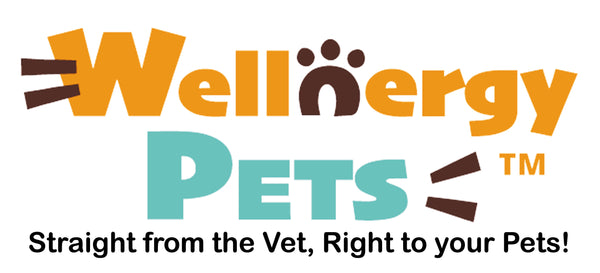What do yogurts, kombucha, and fermented foods have in common? They are plentiful in good microorganisms! Good microorganisms, otherwise known as probiotics, are bacteria and other microscopic organisms that are beneficial to one’s health when consumed. These probiotics are generally known to aid in the digestion of foodstuffs and also help to prevent the over-accumulation of bad bacteria or microorganisms that can cause indigestion, bloating, and other health issues.
While probiotics are all the rage these days in the world of human nutrition, dogs and cats can greatly benefit from them as well! In fact, many of the same microorganisms, such as Bacillus, Lactobacillus and Bifidobacterium, are great probiotics for humans and our furry friends alike.
So how do probiotics for dogs and cats help?
1. Aid in digestion:
As mentioned above, probiotics help digest food within the gut that a dog or cat may otherwise have difficulty digesting. Specifically, most ‘fibers’ and ‘starches’ are indigestible without the help of probiotics. Probiotics for dogs and cats process fibers in the gut to make them softer and more readily digestible by their hosts.
2. Stop growth of bad bacteria:
Some bacteria, such as E.coli and Salmonella, can cause illness when in high numbers. Probiotics for dogs and cats help to keep bad bacteria numbers low by competing for nutrients, taking up space, and releasing proteins that are harmful to them.
3. Decrease gut inflammation:
By aiding in digestion and stopping the growth of bad bacteria, probiotics for dogs and cats help to reduce inflammation in the gut. This directly leads to healthier, more effective intestines that not only absorb nutrients more efficiently, but also decrease the incidence of diseases such as irritable bowel syndrome or food allergies.
4. Boost immune systems:
With less unnecessary inflammation to worry about, the body can concentrate more on fighting off illness inducing pathogens, such as bad bacteria, viruses, or other infectious organisms.
5. Overall Health:
With healthier guts and better absorption of nutrients, naturally, the rest of the body will also become healthier. Better haircoats, breath, less gas, and firmer stools are commonly reported after taking probiotics.
6. Stress relief:
Newer studies suggest that certain probiotics for dogs and cats can help relieve stress in pets. Not only do these probiotics decrease the occurrences of stress-induced diarrhea, but they can also have an anti-anxiety effect on the brain.
Types of Probiotics for Dogs and Cats
Many human foods, such as yogurts and cottage cheese, contain probiotics that are beneficial to pets. However, it is much more difficult to find the correct dosing for pets when using human products. It is also very important to make sure that the products are not too fatty or contain anything else that may be toxic to pets, such as xylitol and caffeine (sorry, no kombucha for them). Furthermore, not all human products are created equally and there are some differences between probiotics that are beneficial for humans compared to those that are beneficial for pets.
Probiotics for dogs and cats made specifically for pets are safer, and come as chews, powders, capsules, or gels. Pet owners can easily choose a probiotic for dogs and cats based on their pet’s preferences and dietary requirements.
Different probiotics can help pets in different ways, so it is important to remember that probiotics for dogs and cats meant to help boost the immune system may not be the same probiotics for dogs and cats used to reduce stress.
Veterinarian Recommended
Look for probiotics for dogs and cats that have been recommended by a veterinarian, as not all probiotics for dogs and cats are created equally. Most veterinarians will have chosen their preferred probiotics for their quality, efficacy, and transparency. I would recommend Wellnergy Pets' Probiotics for dogs and cats. It's hydrolyzed duck flavor is specifically made for pets with protein sensitivities and it's also free of corn, wheat, and artificial ingredients that may cause stomach upset.
The study of probiotics in dogs and cats is still fairly new and there will be a lot more information available as we continue to study their effects. What are your thoughts, questions, or concerns? Please feel free to reach out to our team on Facebook, Instagram, e-mail, or in the comments section if you have any other questions.
About the Author:
 Dr. Debra Chen, D.V.M. has been a practicing companion animal veterinarian for over three years in the San Francisco Bay Area. Prior to moving to the Bay, she received both her veterinary and undergraduate degrees at the University of Minnesota. After spending a third of her life in Taiwan, she is also fluent in Mandarin Chinese. Her veterinary interests include preventative medicine, animal behavior, and surgery. When not practicing medicine, Dr. Chen can be found camping, hiking, eating, or traveling with her husband and Formosan Mountain Dog, Tuna. They also share a home with their two feline overlords, brown tabby cats Cairo and Khaleesi.
Dr. Debra Chen, D.V.M. has been a practicing companion animal veterinarian for over three years in the San Francisco Bay Area. Prior to moving to the Bay, she received both her veterinary and undergraduate degrees at the University of Minnesota. After spending a third of her life in Taiwan, she is also fluent in Mandarin Chinese. Her veterinary interests include preventative medicine, animal behavior, and surgery. When not practicing medicine, Dr. Chen can be found camping, hiking, eating, or traveling with her husband and Formosan Mountain Dog, Tuna. They also share a home with their two feline overlords, brown tabby cats Cairo and Khaleesi.

